How to Be a Responsible Dog Owner: Tips and Guidelines for Pet Care

Tips and Guidelines for Pet Care
Being a responsible dog owner is not just about providing food and shelter for your furry friend.
It means taking care of their physical and emotional needs, ensuring their safety, and being a good neighbor to those around you.
A responsible dog owner is someone who understands the commitment they have made and takes it seriously.
To be a responsible dog owner, one must first recognize the commitment they are making.
Owning a dog is a long-term commitment that requires time, effort, and money.
Assessing whether you are ready for a dog before bringing one into your home is important.
This includes considering your lifestyle, living situation, and financial situation to ensure you can provide the necessary care for your dog.
Once you have committed to being a responsible dog owner, there are many things you can do to ensure that your dog is happy, healthy, and safe.
This includes proper nutrition, exercise, medical care, training, and socialization.
It also means being a good neighbor by following local laws and regulations, cleaning up after your dog, and respecting those around you.
Understanding the Commitment
Becoming a responsible dog owner requires significant time, energy, and resources.
Before bringing a new puppy, older dog, or perfect dog into their home, potential owners must understand the level of commitment involved.
Time and Energy Level
Dogs require daily exercise, attention, and care.
The time and energy required varies depending on the dog’s breed, age, and individual needs.
Potential dog owners should consider their own lifestyle and schedule to ensure they can provide the necessary time and energy for their furry friend.
This includes daily walks, playtime, training, grooming, and veterinary visits.
Financial Responsibilities
Owning a dog also comes with financial responsibilities.
These include the cost of food, toys, grooming supplies, veterinary care, and unexpected expenses such as emergencies or illnesses.
Potential dog owners should budget for these expenses and consider whether they can afford the cost of owning a dog for its life.
Living Arrangements
Living arrangements are also an important consideration when becoming a responsible dog owner.
Dogs require adequate space, shelter, and safety.
Potential dog owners should ensure their living arrangements are suitable for their chosen breed and size of the dog.
This includes having a secure yard, access to a nearby park, and a comfortable and safe indoor space.
Understanding the commitment to owning a dog is essential to becoming a responsible dog owner.
Potential owners should carefully consider their lifestyle, financial situation, and living arrangements before bringing a new furry friend into their home.
With the right level of commitment and care, owning a dog can be a rewarding and fulfilling experience for both the owner and the dog.
Choosing the Right Breed
Choosing the right breed is essential for responsible dog ownership.
It involves researching the breed, considering the dog’s size, temperament, and trainability, and finding a responsible and ethical breeder or animal shelter.
Checkout List of Dog breeds
Research the Breed
Before choosing a breed, it is important to research its characteristics, such as energy level, exercise needs, grooming requirements, and potential health issues.
The American Kennel Club (AKC) provides a comprehensive guide to different breeds, which can help potential owners make informed decisions.
Consider the Dog’s Size and Temperament
The dog’s size and temperament should also be considered when choosing a breed.
For example, a large breed may not be suitable for a small living space, while a high-energy breed may not be appropriate for an elderly owner.
Additionally, some breeds may be more prone to certain behaviors, such as barking or aggression, which may not suit every owner.
Find a Responsible and Ethical Breeder or Animal Shelter
When choosing a breeder, it is important to find a responsible and ethical breeder who prioritizes the health and well-being of their dogs.
This includes proper health testing, socialization, and adequate living conditions.
Alternatively, adopting a dog from an animal shelter can also be a responsible choice, as it helps reduce the number of dogs in shelters and provides a loving home for a dog in need.
Trainability
Trainability is also an important factor to consider when choosing a breed. Some breeds may be easier to train than others, which can be an important consideration for first-time dog owners.
However, it is essential to note that all dogs require training and socialization to become well-behaved pets.
Choosing the right breed is an essential part of responsible dog ownership.
By researching the breed, considering the dog’s size and temperament, and finding a responsible and ethical breeder or animal shelter, potential owners can make an informed decision and provide a loving home for their new pet.
Health and Wellness
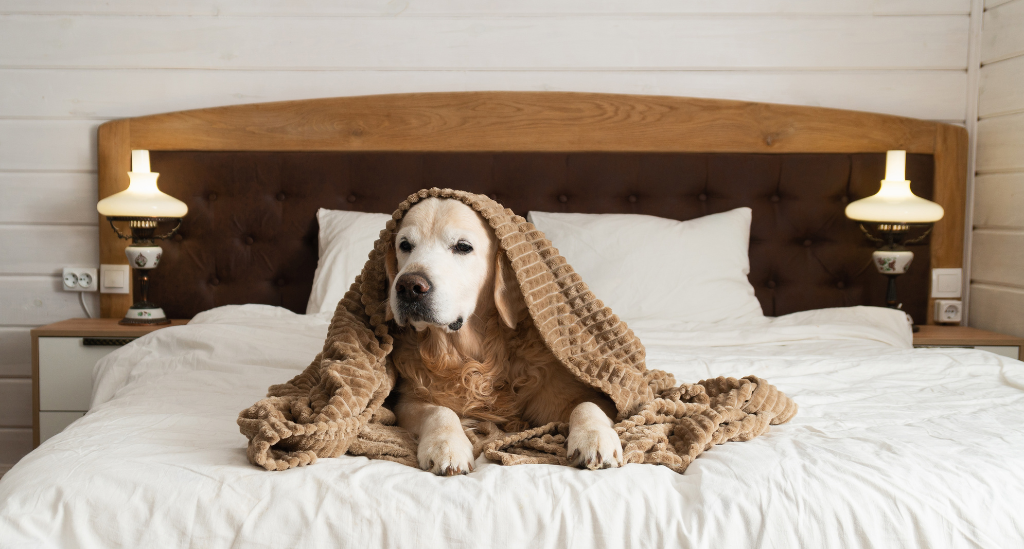
One of the most important aspects of responsible dog ownership is ensuring your furry friend is healthy and happy.
Here are some tips on how to keep your dog healthy and prevent health issues:
Regular Vet Visits
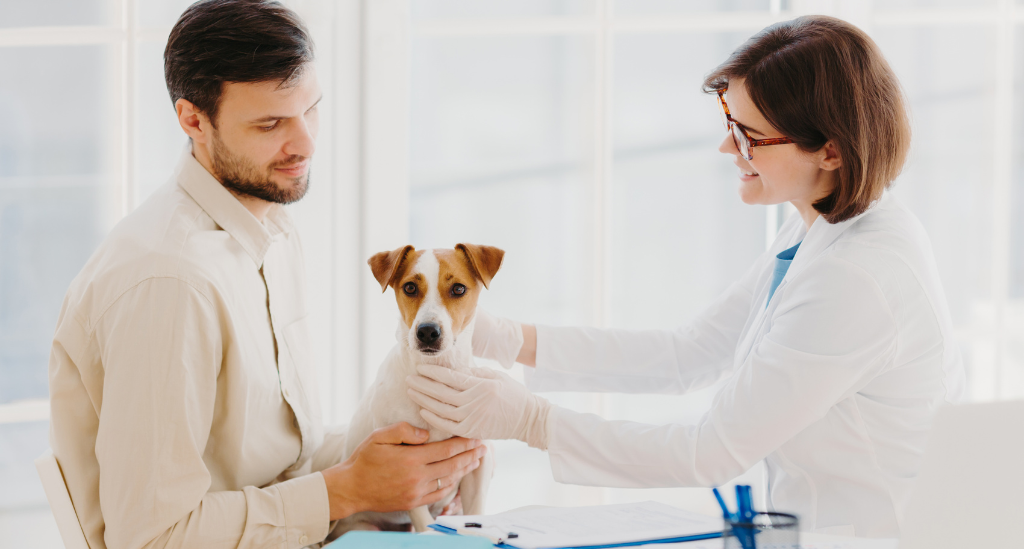
Regular visits to the vet are essential for maintaining your dog’s health.
A veterinarian can provide necessary vaccinations, health checks, and preventative care to keep your dog in shape.
It’s recommended that dogs receive a wellness check-up at least once a year and more often for senior dogs or those with chronic health issues.
Vaccinations
Vaccinations are crucial for preventing diseases in dogs, and staying up-to-date on your dog’s vaccinations is important.
Core vaccinations are essential, while non-core vaccinations may be recommended based on your dog’s lifestyle and risk factors.
Always consult your veterinarian to determine which vaccinations are necessary for your dog.
Healthy Diet
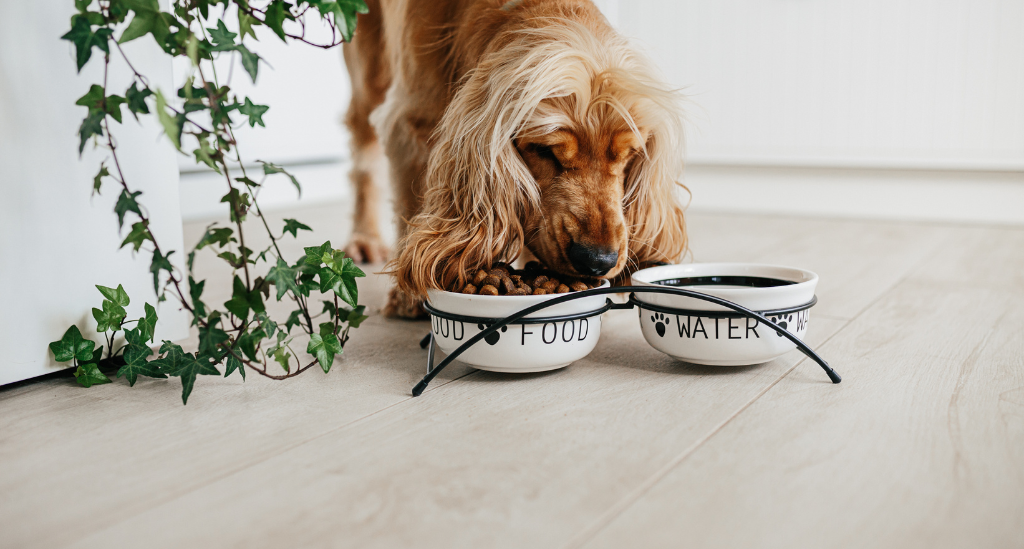
A healthy diet is key to maintaining your dog’s health and wellness.
A well-balanced diet should include high-quality proteins, healthy fats, and essential vitamins and minerals.
Avoid feeding your dog table scraps or human food, which can be harmful and lead to obesity and other health issues.
Healthy Weight
Maintaining a healthy weight is crucial for your dog’s overall health and wellness.
Obesity can lead to various health problems, including joint issues, heart disease, and diabetes.
Monitor your dog’s weight and adjust its diet and exercise routine accordingly.
Pet Insurance
Pet insurance can provide peace of mind and financial protection in unexpected health issues or emergencies.
Consider purchasing pet insurance to ensure that your dog receives the care they need without breaking the bank.
Following these tips can help ensure your dog stays healthy and happy for years.
Training Your Dog
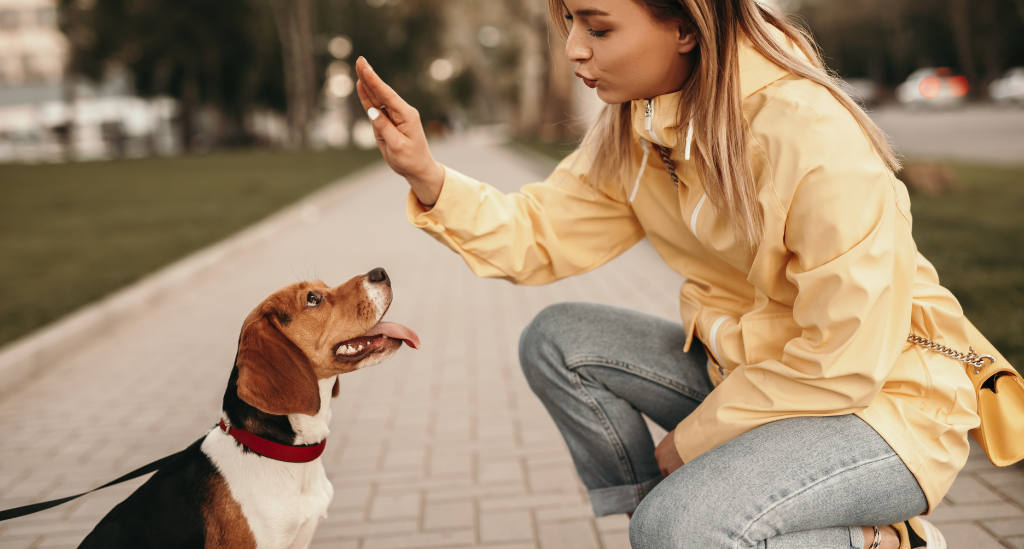
Training your dog is an essential part of being a responsible dog owner.
It helps to establish a positive relationship between you and your dog, and it also helps to keep your dog safe.
Here are some tips on how to train your dog:
Leash Training
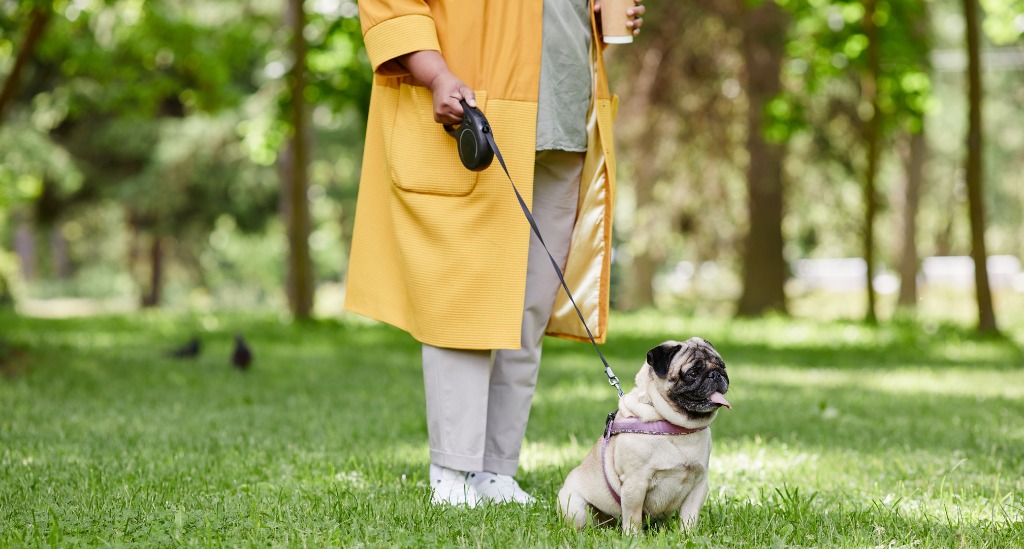
Leash training is an important part of training your dog. It helps to keep your dog safe when you’re out in public, and it also helps to establish boundaries.
When training your dog, use a lightweight leash and collar.
Begin by walking your dog on a short leash, and gradually increase the length of the leash as your dog becomes more comfortable.
House Training
House training is another important part of training your dog. It helps to establish boundaries and prevent accidents in the house.
When house training your dog, establish a routine and stick to it.
Take your dog outside at regular intervals, and reward your dog when they go to the bathroom outside.
House Rules
Establishing house rules is an important part of training your dog. It helps to establish boundaries and prevent unwanted behavior.
When establishing house rules, be consistent and clear.
Use positive reinforcement to reward good behavior, and redirect your dog’s attention when they engage in unwanted behavior.
Training Classes
Training classes are a great way to socialize your dog and learn new training techniques.
When choosing a training class, look for a class that focuses on positive reinforcement and uses humane training methods.
Excessive Barking
Excessive barking is a common problem for many dog owners.
When dealing with excessive barking, it’s crucial to identify the cause of the barking.
Is your dog barking out of boredom or anxiety? Once you identify the cause, you can work on addressing the behavior through training and positive reinforcement.
In conclusion, training your dog is essential to being a responsible dog owner.
Following these tips and using positive reinforcement can establish a positive relationship with your dog and prevent unwanted behavior.
Socialization and Playtime
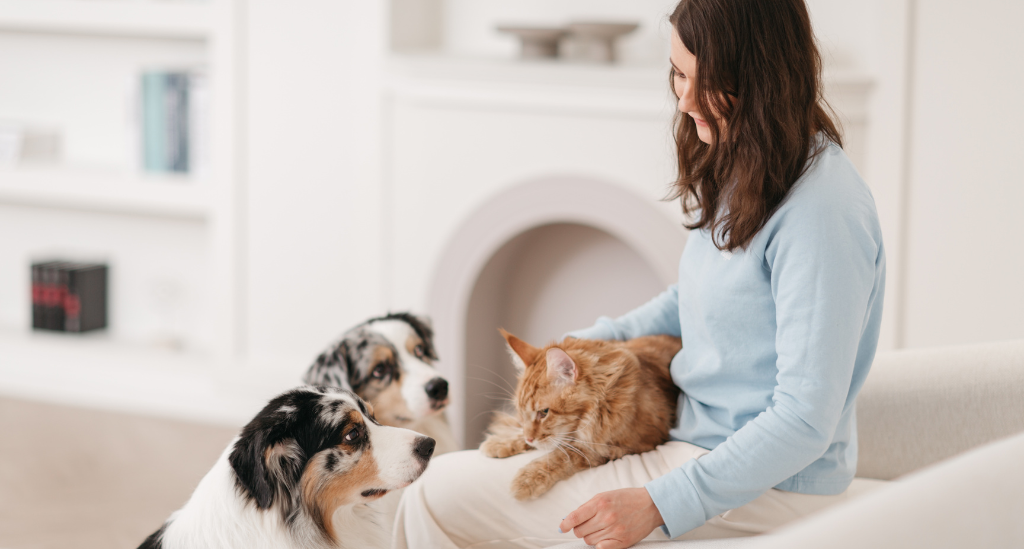
Socialization and playtime are essential for a dog’s mental and physical well-being. Dogs are social animals and require interaction with other dogs and humans to develop social skills and prevent behavioral issues.
To socialize a dog, exposing them to different people, environments, and situations is essential.
The American Kennel Club recommends puppies begin socialization as early as three weeks.
Puppies should be introduced to different people, including children, men, women, and people of other races and ages.
When socializing a dog, it is important to ensure the interactions are positive and not overwhelming.
The AKC advises owners to invite calm, mild-mannered friends who can be trusted to gently handle and play with a puppy.
Playtime is also crucial for a dog’s physical and mental health.
Dogs require exercise to maintain a healthy weight and prevent obesity-related health issues.
Playtime provides mental stimulation and can prevent destructive behaviors such as chewing and digging.
Owners should provide their dogs with plenty of toys to play with, including chew toys, interactive toys, and puzzle toys.
Engaging in activities such as fetch, tug-of-war, and hide-and-seek is also important to keep dogs active and mentally stimulated.
In summary, socialization and playtime are essential for a dog’s well-being.
To develop social skills, owners should ensure their dogs are exposed to different people, environments, and situations.
Playtime should also be a regular part of a dog’s routine and include various activities and toys to stimulate them physically and mentally.
Feeding Your Dog
Feeding your dog is an essential part of being a responsible dog owner.
A well-balanced diet can help your dog maintain a healthy weight, have a shiny coat, and prevent health problems.
Here are some tips for feeding your dog:
Choose High-Quality Dog Food
When it comes to dog food, quality matters, choose a high-quality dog food that contains all the necessary nutrients your dog needs.
Look for dog food with real meat as the first ingredient, and avoid dog food containing fillers, such as corn, wheat, and soy.
These fillers have little nutritional value and can cause digestive problems.
Follow Feeding Guidelines
Feed your dog according to the feeding guidelines on the dog food package. The amount of food your dog needs will depend on their age, weight, and activity level.
Overfeeding your dog can lead to obesity, which can cause health problems such as diabetes and joint pain.
Avoid Table Scraps
While giving your dog table scraps may be tempting, it’s not a good idea. Table scraps can be high in fat and salt, which can cause digestive problems and lead to obesity.
In addition, some human foods, such as chocolate, onions, and garlic, can be toxic to dogs.
Limit Treats
Treats are a great way to reward your dog but they should be given in moderation. Too many treats can lead to obesity and other health problems.
Choose healthy treats that are low in calories, and avoid those high in sugar or fat.
Provide Fresh Water
Make sure your dog has access to fresh water at all times.
Change the water in your dog’s bowl daily and wash the bowl regularly to prevent bacteria from growing.
By following these tips, you can ensure your dog gets the nutrition they need to stay healthy and happy.
Grooming Essentials
Grooming is an essential part of responsible dog ownership.
It not only keeps your dog looking and smelling good, but it also helps maintain its overall health and well-being.
Regular grooming can help prevent skin irritations, matting, and other health problems.
Here are some grooming essentials that every responsible dog owner should know.
Bathing
Bathing is an integral part of grooming your dog. It helps remove dirt, debris, and odors from their coat.
However, it’s important not to overdo it as too much bathing can strip the natural oils from your dog’s skin and coat.
The frequency of bathing will depend on your dog’s breed, coat type, and activity level.
Generally, bathing once a month is sufficient for most dogs. Use a mild dog shampoo and rinse thoroughly to avoid any residue.
Grooming Tools
Having the right grooming tools can make the process easier and more effective. Some essential grooming tools include:
- Brush: Regular brushing helps prevent matting, removes loose hair, and distributes natural oils throughout your dog’s coat.
- Comb: A comb can help remove tangles and mats and be useful for checking fleas and ticks.
- Nail Clippers: Trimming your dog’s nails is important for their comfort and health.
- Ear Cleaner: Regular cleaning of your dog’s ears can prevent infections and other ear problems.
Regular Grooming
Regular grooming is important for maintaining your dog’s overall health and well-being. In addition to bathing and brushing, other grooming tasks include:
- Teeth Cleaning: Regular teeth cleaning can help prevent dental problems such as gum disease and bad breath.
- Eye Cleaning: Cleaning your dog’s eyes with a damp cloth can help prevent infections and remove any discharge.
- Paw Care: Regularly trimming the fur around your dog’s paw pads and checking for cuts or scrapes can help prevent infections.
In conclusion, grooming is an essential part of responsible dog ownership.
Following these grooming essentials can help keep your dog healthy, comfortable, and looking their best.
Ensuring Safety
Being a responsible dog owner means ensuring the safety of your furry friend.
There are several ways to do this, including microchipping, securing your yard, using a collar and leash, implementing a containment policy, and using ID tags.
Microchipping your dog is an essential part of responsible pet ownership.
A microchip is a tiny electronic device that is implanted under your dog’s skin. It contains a unique identification number that can be read by a scanner.
This identification number is linked to your contact information, making it easier for animal shelters, veterinarians, or other authorities to locate you if your dog is lost.
Securing your yard is also crucial to your dog’s safety.
Ensure your yard is fenced and there are no holes or gaps where your dog can escape. Additionally, keep your gate locked and make sure that your dog cannot dig under the fence.
If you don’t have a fenced yard, consider using a tie-out or a stake to keep your dog in a designated area.
Using a collar and leash is another crucial aspect of responsible dog ownership.
Your dog should wear a collar with identification tags at all times, even when they are at home.
A leash should be used when walking your dog to prevent them from entering the street or dangerous situations.
Implementing a containment policy is also essential for your dog’s safety. Your dog should be kept in a safe and secure area when you are not home.
This can be achieved using a crate, a designated room, or a secure outdoor area.
Finally, using ID tags is an essential part of responsible dog ownership. Your dog’s collar should have identification tags, including your name, phone number, and address.
This will help ensure your dog can be returned to you if lost.
By following these tips, you can ensure your dog’s safety and be a responsible pet owner.
Responsible Dog Ownership
Being a responsible dog owner is more than just providing food and shelter.
It’s a commitment to the well-being of your furry friend and the safety of others around them. Here are some tips for responsible dog ownership:
Register Your Dog
One of the first steps to being a responsible dog owner is registering your dog with a reputable registry such as the American Kennel Club (AKC).
This helps ensure your dog is purebred and has a documented pedigree. It also allows your dog to compete in AKC events and shows.
Provide Proper Training and Socialization
Training and socialization are crucial to a dog’s well-being, and the owner’s responsible for providing it.
A well-trained and socialized dog is less likely to exhibit destructive behavior, aggression, or anxiety.
Consider enrolling your dog in obedience classes or working with a professional trainer to ensure that your dog is well-behaved and happy.
Keep Your Dog Healthy
Regular veterinary check-ups, vaccinations, and preventative care are essential to keeping your dog healthy.
Providing your dog with a nutritious diet, exercise, and mental stimulation is also important.
Keeping your dog healthy ensures that they live a long and happy life.
Be a Responsible Neighbor
As a responsible dog owner, it’s important to be considerate of your neighbors and community.
Always clean up after your dog and keep them on a leash when in public places.
It’s also important to ensure your dog isn’t causing a disturbance with excessive barking or aggressive behavior.
Provide a Safe Environment
Providing a safe environment for your dog is crucial to their well-being.
Make sure that your home and yard are secure and free from hazards.
Keep dangerous substances out of reach, and provide your dog with a comfortable and safe place to rest.
In summary, responsible dog ownership requires a commitment to the well-being of your furry friend and the safety of others around them.
By registering your dog, providing proper training and socialization, keeping your dog healthy, being a responsible neighbor, and providing a safe environment, you can ensure your dog lives a happy and fulfilling life.
Frequently Asked Questions
What are the legal responsibilities of a dog owner?
Dog owners are legally responsible for ensuring their pets are licensed and vaccinated according to local laws.
They are also responsible for their dog’s behavior and must ensure that their pet does not cause harm or damage to others or their property.
In some areas, dog owners may also be required to keep their pets on a leash or within a fenced area.
What are some tips for training a new dog?
Training a new dog requires patience, consistency, and positive reinforcement.
It is essential to establish clear boundaries and rules from the beginning and to reward good behavior.
Consistent training sessions and socialization with other dogs and people can also help to ensure that the dog is well-behaved and obedient.
What are the characteristics of a responsible dog breed?
A responsible dog breed is known for being friendly, social, and easy to train. These breeds are typically well-suited to living in a family environment and are not aggressive or prone to biting.
Some examples of responsible dog breeds include Golden Retrievers, Labrador Retrievers, and Beagles.
What are some common mistakes made by irresponsible pet owners?
Irresponsible pet owners may fail to provide their pets with proper food, water, and shelter or may neglect to take them to the vet for regular check-ups and vaccinations.
They may also fail to train their pets or properly socialize them with other dogs and people, leading to behavior problems.
In some cases, irresponsible pet owners may abandon their pets or fail to properly care for them, which can result in serious health problems or even death.
What does responsible pet ownership entail?
Responsible pet ownership entails providing your pet with proper food, water, shelter, and medical care, as well as training and socialization.
It also means being aware of local laws and regulations regarding pet ownership and ensuring that your pet does not cause harm or damage to others or their property.
How can I ensure that I am the best possible dog owner?
To be the best possible dog owner, educating yourself about your pet’s needs and behaviors and providing them with proper care and training is essential.
This includes regular exercise, socialization, veterinary care, and plenty of love and attention.
It is also important to be aware of your dog’s behavior and to address any issues promptly before they become more serious problems.
